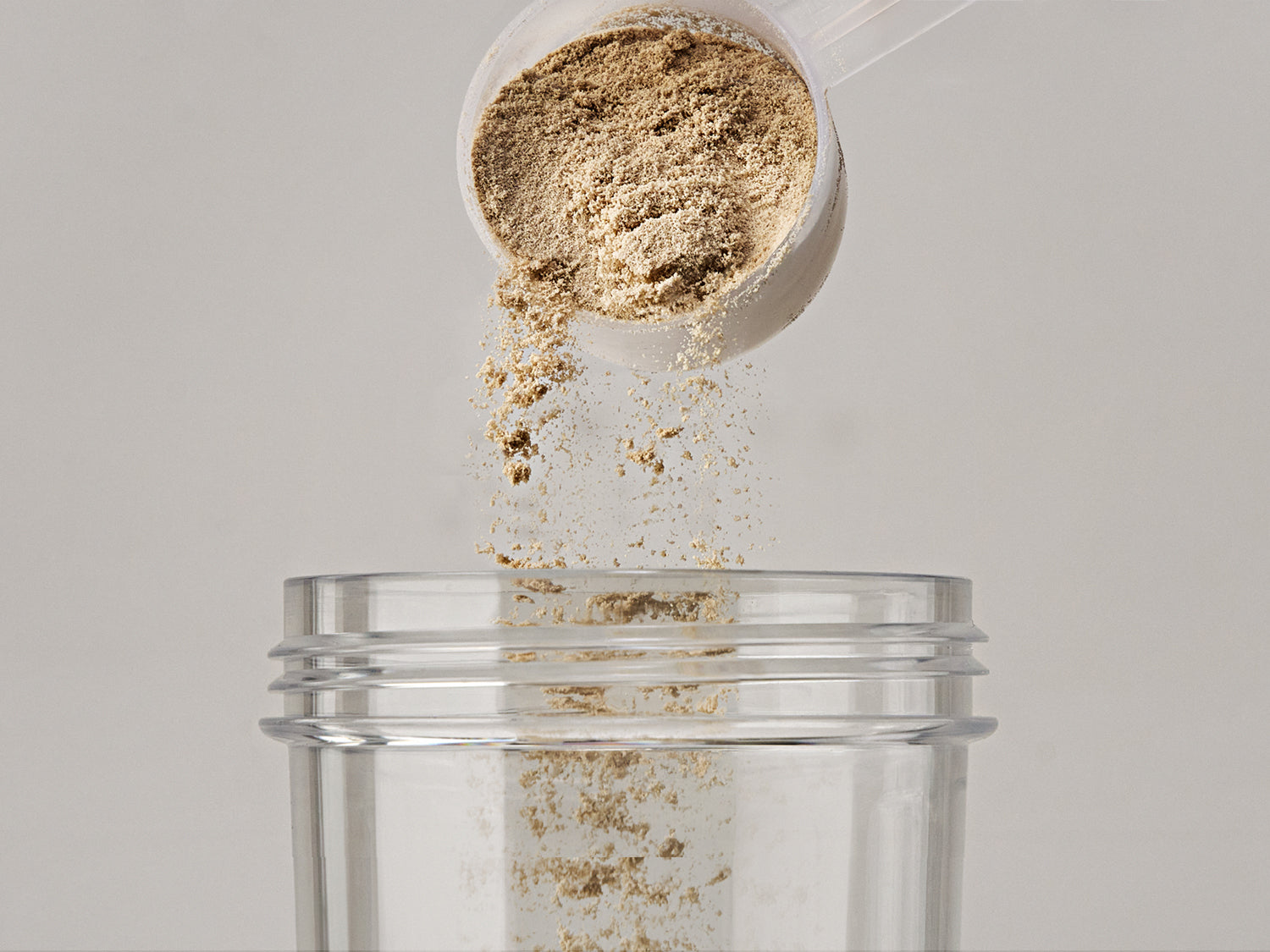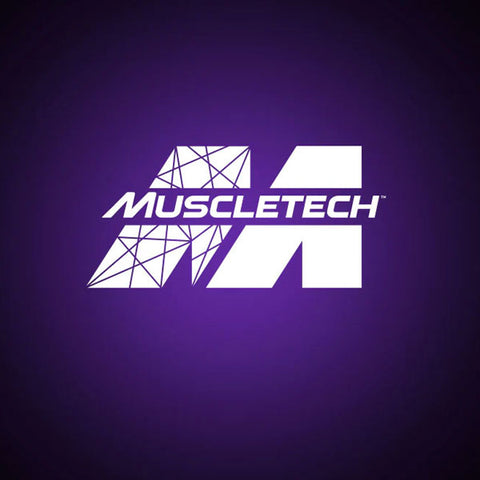Pre-workout supplements have become insanely popular in the last couple of years due to their impressive benefits, including improved energy, muscle performance, and endurance. Even though athletes have been swearing by these supplements, some people still ask: does pre-work help with muscle gain?
Like most workout supplements, pre-workout won’t make you bulk up overnight. Instead, they can enhance your performance by giving you more energy, strength, and focus. In turn, this allows you to push yourself harder, lift more, and increase your reps, leaving you one step closer to your body goals.
If you’re wondering does pre-workout helps with muscle gain, this blog will answer all of your questions! We’ll dive deep into these supplements, focusing on their common ingredients, how they affect your performance and their overall impact on muscle hypertrophy. By the end, you’ll know whether you’ll need to include pre-workouts in your supplement rotation.
Understanding Pre-Workout Supplements
What Are Pre-Workout Supplements?
Before we answer does pre-work helps with muscle gain, you need to know everything about these supplements, starting with their content.
Pre-workout supplements are formulas designed to optimize physical and mental performance before and during your exercise. They come in various forms such as powders, capsules, and drinks.
Pre-workout benefits for muscle growth include increased energy levels, endurance, and recovery time. Additionally, these supplements improve your muscle strength, allowing you to exercise stronger and longer. Finally, pre-workouts can help deliver nutrients to your bloodstream, directly affecting muscle pups.
Moreover, it’s very important when to take pre-workout supplements. Ideally, they should be taken 30-45 minutes before you go to the gym, as this allows for them to take effect. However, it’s important to mention that these supplements have caffeine in their content. With that in mind, if you’re planning to exercise close to your bedtime, you may want to reconsider them as they can make you jittery and affect your sleep.
Common Ingredients Found in Pre-Workouts
Caffeine: A powerful stimulant that increases alertness, reduces perceived exertion, and boosts workout performance.
Beta-Alanine: Aids in lactic acid buffering, reducing muscle fatigue and improving endurance.
Creatine Monohydrate: Increases ATP production, improving power output and muscle recovery.
Nitric Oxide Boosters (L-Arginine, Citrulline Malate): Enhance vasodilation, improving oxygen and nutrient delivery to muscles.
Branched-chain Amino Acids (BCAAs): Support muscle protein synthesis and reduce post-workout muscle breakdown.
Electrolytes: Maintain hydration and aid in muscle contractions, preventing cramps.
Types Of Pre-Workout Supplements
Pre-workout supplements can be categorized into two groups: stimulant-based and non-stimulant options.
Stimulant-based pre-workouts are the most common on the market, containing a lot of caffeine in their content along with other stimulants. Because of this, you can experience improved energy, endurance, and focus. These supplements are fit for athletes who often perform high-intensity workouts, especially heavy weightlifting. As previously mentioned, pre-workouts with caffeine cause jitteriness, meaning you should be careful when you take it.
On the other hand, non-stimulant pre-workout supplements don’t contain any energy-enhancing stimulants. While the former is more focused on improving your performance, this option is all about enhanced blood flow and muscle recovery.
These supplements contain nitric oxide boosters like L-arginine and Citrulline Malate, electrolytes, and adaptogens, all of which work to improve oxygen delivery, resulting in reduced fatigue. With that said, non-stimulant pre-workouts are ideal for those who are sensitive to stimulants, exercise late at night, and/or are worried about overstimulation.
The Science Behind Muscle Growth
What Does It Take To Build Muscle?
There’s a lot that goes into muscle growth. This is a complex process that involves mechanical tension, metabolic stress, and muscle damage. When you’re doing resistance training, your muscles are exposed to micro-tears, ultimately triggering hypertrophy.
Several key factors influence muscle growth:
Progressive Overload: Muscles need a continuously increasing challenge through heavier weights, more repetitions, or higher intensity workouts.
Protein Synthesis vs. Breakdown: Muscle protein synthesis (MPS) must exceed muscle protein breakdown (MPB) for net muscle growth.
Nutritional Intake: Adequate protein (1 gr per pound), carbohydrates for energy, and healthy fats support muscle-building efforts.
Hormonal Response: Testosterone, insulin-like growth factor-1 (IGF-1), and growth hormone facilitate muscle repair and hypertrophy.
Adequate Recovery: Muscles grow outside the gym during rest, emphasizing the need for proper sleep (7–9 hours per night) and recovery protocols.
How Pre-Workout Ingredients Contribute to Muscle Growth?
- Caffeine: Increases adrenaline, enhances pain tolerance, and delays fatigue, leading to more intense workouts.
- Nitric Oxide Boosters: Improve vasodilation, increasing oxygen and nutrient delivery to muscles.
- Creatine: Increases ATP production, supporting short bursts of strength and power, crucial for resistance training.
- Beta-Alanine: Buffers lactic acid buildup, delaying muscular fatigue and allowing higher training volumes.
- BCAAs: Help reduce muscle protein breakdown during workouts and improve recovery post-exercise.
Do Pre-Workouts Directly Build Muscle?
Finally, let’s answer the question – does pre-workout help with muscle growth?
To give you the short answer – no, pre-workout supplements don’t directly affect muscle growth. There are many gym rats who believe the misconception that these supplements can quickly buff them up. On the contrary, pre-workouts work along with consistent training, proper nutrition, and proper recovery to bring you toward your body goals.
Specifically, pre-workouts increase energy, endurance, and strength, allowing you to go harder during your gym sessions. After continuous use, you’ll definitely notice the difference!
Again, it’s important to mention that your results depend on your performance and consistency. In other words, even the best pre-workout supplements for muscle growth won’t be effective if you aren’t exercising regularly and eating properly.
When & How To Take Pre-Workout Supplements For Best Results?
Best Time To Take Pre-Workouts
Now that you know the answer to does pre-workout helps with muscle growth, let’s go into the details of when you should take it.
To maximize the effects of your supplements, timing is of crucial importance. You should take pre-workouts 30 to 45 minutes before exercising. This is more than enough time for the ingredients to be absorbed and take effect.
Additionally, you should also consider proper dosage. Overconsumption can lead to problems with your sleep schedule and digestion, as well as jitteriness and cardiovascular strain. So, if this is your first time taking pre-workouts, start with taking small doses and see how your body reacts. Of course, ensure you’re hydrated during and after your workouts to prevent dehydration from diuretic ingredients. Lastly, cycle pre-workouts every 6-8 weeks to avoid stimulant dependence.
What To Look for In A Good Pre-Workout Formula?
As always, you should always look into the labels of pre-workout supplements. Specifically, they shouldn’t include any proprietary blends as they often hide actual dosages of key ingredients. In turn, this can make it difficult to determine whether you’re getting the right amount.
Moreover, you should also look into artificial ingredients. For one, the best pre-workouts for muscle growth shouldn’t contain any artificial fillers, excessive sweeteners, and unnecessary additives. Additionally, synthetic dyes and preservatives are a big no since they can cause major side effects such as bloating and gastrointestinal effects.
With that said, when you’re looking into labels, you should opt for formulas with natural flavoring and scientifically backed-up ingredients, resulting in a cleaner, more effective supplement.
Common Myths & Misconceptions About Pre-Workouts
After knowing does pre-workout help with muscle growth, you should also know some of the myths and misconceptions about this supplement.
1. Pre-Workouts Are Only For Bodybuilders
This is so not true! Even though bodybuilders commonly use these supplements for muscle growth, they are not exclusively for them. In other words, they can benefit anyone who’s looking to improve their exercise performance, from casual gym-goers to seasoned athletes.
2. Pre-Workouts Are Necessary For Muscle Growth
Again, this is another misconception that many gym-goers swear by. As previously mentioned, pre-workout supplements don’t directly affect your muscles.
Instead, they increase your energy, endurance, strength, and recovery times, making you go harder at the gym. Of course, don’t forget about the importance of proper nutrition along with regular exercise as these are the most important factors that contribute to your fitness goals.
3. More Is Better
As with most supplements for muscle growth, more definitely isn’t better. By taking more than the regular dosage, pre-workouts can cause restlessness and anxiety. Additionally, going overboard with supplementation can cause overstimulation, leading to disrupted sleep cycles. With that said, make sure that your dosage is always correct so you don’t encounter any of these side effects.
Alternative Ways To Boost Workout Performance
If you’re not keen on taking supplements, there are other natural ways to improve your workout performance.
For one, you can always turn to coffee. Caffeine is known to directly affect your energy levels, making you exercise for longer. This can also help on those days when you feel like you’re too lazy to work out – a cup of hot joe can make you pepped instantly!
Moreover, you can also include whole foods in your nutrition plan. Foods such as bananas, oats, and beetroot juice can provide sustained energy for workouts. Plus, they also provide many other benefits, so even if you choose supplementation, these foods can help you enhance your performance.
Of course, don’t forget about mental factors such as sleep and stress management. Lack of sleep can directly affect muscle growth, meaning you should always get at least 7 hours of rest to ensure proper recovery. Of course, if your stress isn’t managed properly, this can lead to excessive weight gain. Even though a hardcore gym session can make you forget your worries (at least for a while), you should also consider other practices that can make you feel more at ease such as yoga and meditation.
Final Verdict: Are Pre-Workouts Worth It For Muscle Growth
So, now that you know does pre-workout help with muscle growth, let’s answer the last important question – do you need to include it in your rotation?
Firstly, pre-workout supplements mainly benefit those seeking enhanced energy, endurance, and workout intensity. In other words, they are perfect for seasoned athletes and bodybuilders who are aiming to improve their body goals.
However, this notion isn’t set in stone. If you’re feeling unmotivated to work out, these supplements can give you the extra push you’re looking for.
Naturally, as you discovered in this blog, pre-workouts aren’t essential for muscle growth, but they can help you with achieving your body goals. Nutrition, proper training, and recovery are the most important factors. But if you use pre-workouts correctly, your gym sessions can be of higer quality, allowing you to better your endurance and recovery.
Lastly, you should understand that pre-workout supplements aren’t magic pills that will give you overnight results. They support your muscle growth by enhancing your work outs, but their final result mainly depends on your consistency and performance.
With that said, the choice of whether you should use them or not is entirely up to you.
Pre-workout supplements can play a significant role in enhancing workout performance by improving energy, endurance, and strength. However, when considering the question, does pre-workout help build muscle, it is essential to understand that these supplements do not directly contribute to muscle growth. Instead, they create an optimal environment for effective training by reducing fatigue, increasing focus, and enhancing overall workout quality.
With that in mind, If you are considering adding pre-workout to your regimen, ensure you choose a high-quality formula with transparent labeling and clinically backed ingredients.
Head on over to our pre-workout collection to find the best options for your fitness goals.




